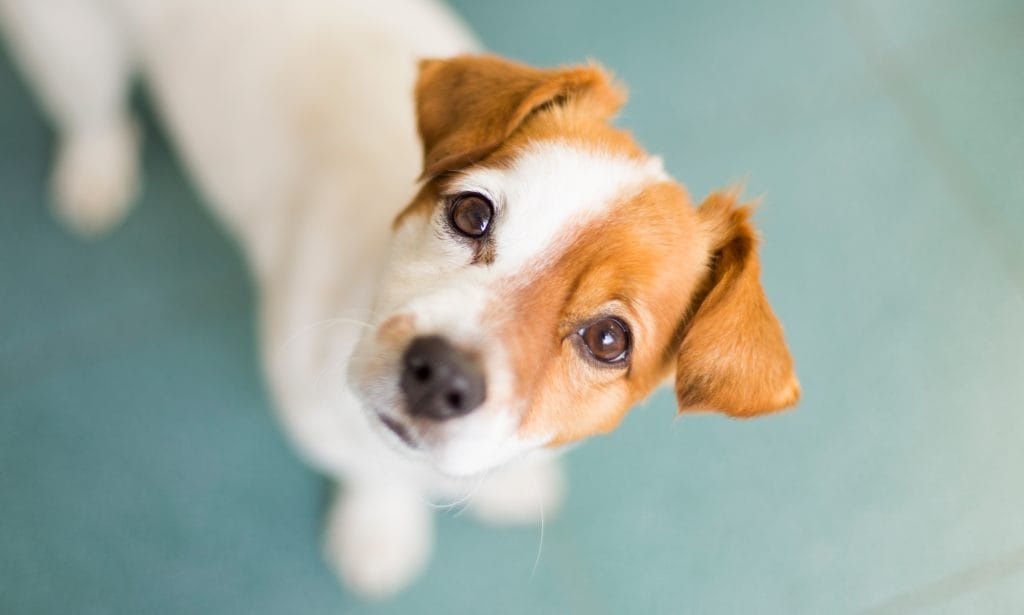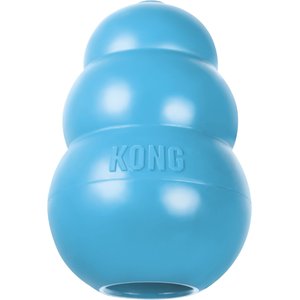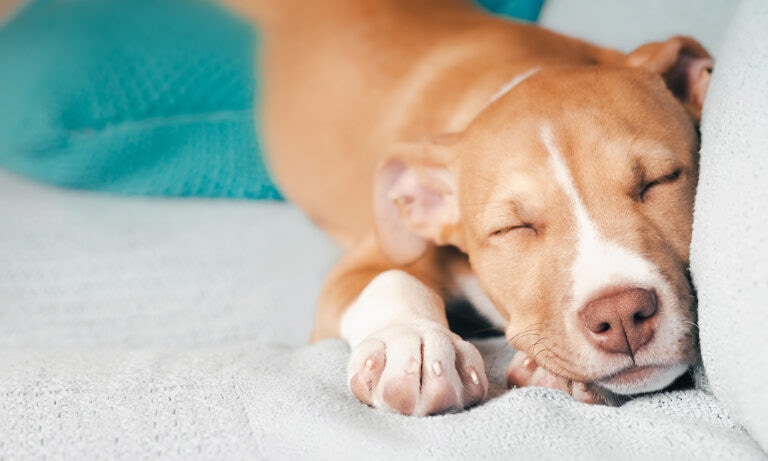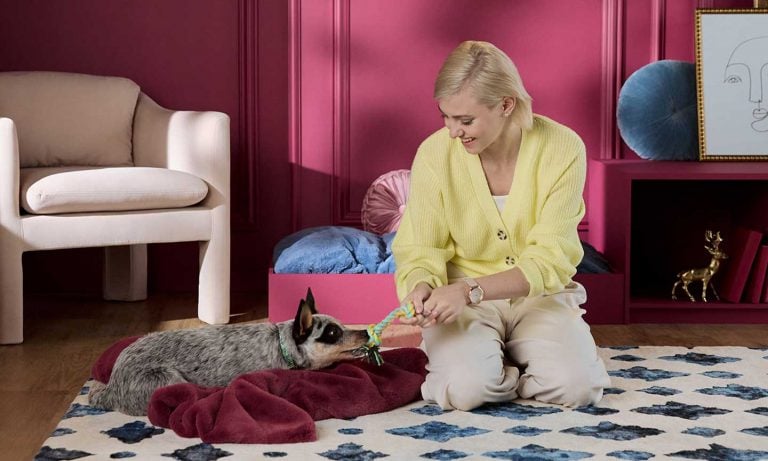The first time you hear your new puppy whine is heartbreaking. The second time, it’s troubling. But after a nonstop barrage of puppy crying, particularly in the middle of the night, whining can leave you feeling completely overwhelmed, frustrated and unsure of how to help your little companion.
Decoding puppy whining (aka learning how to speak puppy) is an important first step in ensuring your new best friend is safe and comfortable. Puppies whine for many reasons, including needing to go potty, conveying excitement about an impending walk or expressing dissatisfaction about being put in their crate.
The solution for whining depends on the reason behind it, and we’ll explore those reasons shortly. But first, let’s cover some basics.
Click to jump to each section:
Is It Normal for Puppies to Whine?
@maileevang0680 1 month with our sweet boy Strike. So tiny, so cute, so lovable. Sweetest little baby. @capitalbulldogs #puppy #momlife #enghlishbulldog #bulldog #dogsoftiktok #doglover #viral #smallpuppy #puppywhine #viraldog #mochaandstrike #cutedog #cutenessoverloaded #cuteanimals #smalldog #cutestbaby ♬ original sound - mocha&strike 🐾
This is because whining is an innate form of communication for a puppy, says Dr. Stephanie Wolf, DVM and veterinarian with The Vets.
Just like a human baby, puppies use whining to communicate to their mother that something is not right or that they need something.
Whining essentially serves as an alarm for the mother dog, alerting her that her puppy requires attention—perhaps they've become separated from their littermates or are hungry. The mother dog responds swiftly and appropriately to her whining puppy, who then quickly finds comfort and settles down.
Once a puppy is old enough to join a new family, they continue to rely on whining as a means of expressing their needs. Now, the responsibility falls on us pet parents to decipher the reason behind their discontent and help them find happiness and comfort in their new home.
Why Is My Puppy Whining?
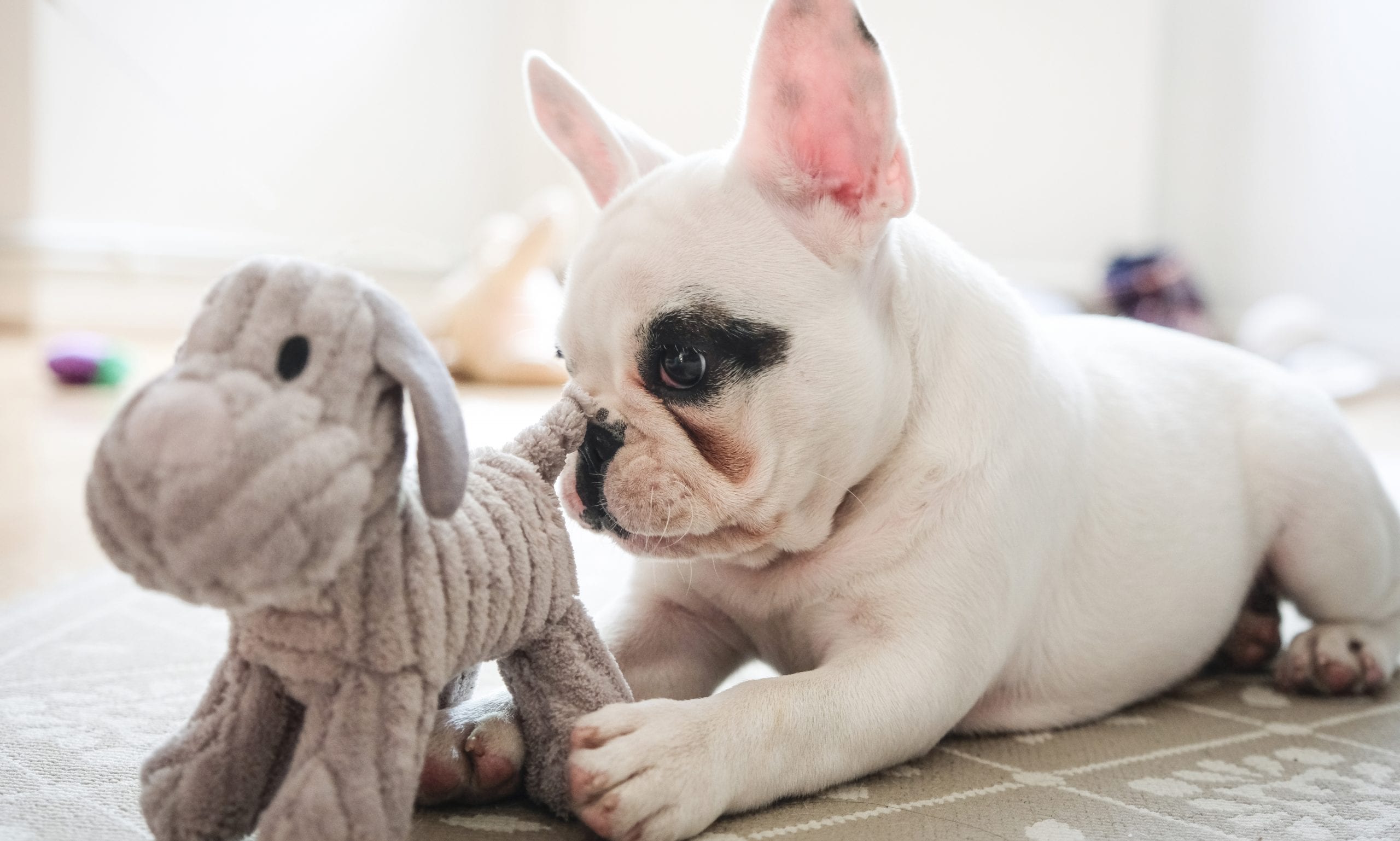
1They need or want something.
Your puppy will likely whine if they need or want something from you or need your help with something.
Some of these whines might be for critical needs like needing to urgently urinate, while others might be for non-critical needs like wanting you to retrieve their favorite toy from under the couch.
2They want your attention.
At times, your puppy may whine simply because they want you to pay attention to them.
This behavior is akin to young children whining when they want their parents to stop what they’re doing and play with them.
3They’re scared, anxious or stressed.
Whining can serve as an indicator that your puppy is feeling scared or anxious. If they’re pacing, trembling or panting in addition to whining, it's likely they’re experiencing fear or anxiety about a particular situation.
This could be due to things like having a new guest in the house or a thunderstorm. Or perhaps they’re concerned because their favorite person is absent or about to leave the house—a behavior called separation anxiety. Learn more about how to treat and prevent puppy separation anxiety.
4They’re excited.
Puppies may whine out of excitement or in anticipation of a positive event. This can occur when guests arrive at the front door, while loading into the car for a walk or when entering public places.
In these instances, whining is typically an expression of their enthusiasm and eagerness for the experience.
5They’re expressing dissatisfaction.
Puppies may whine to express dissatisfaction with certain situations, such as being placed in a crate.
Like humans, dogs have personal preferences and can communicate their displeasure through vocalizations, like whining. By paying attention to these cues, you can better understand your puppy's needs and work towards creating a more comfortable and enjoyable environment for them.
6They’re experiencing discomfort or pain.
Whining can signal that your puppy is experiencing physical discomfort. For instance, if they whine each time they attempt to climb stairs or leap onto the couch, your dog could be suffering from an injured leg.
When there is no apparent explanation for your dog's whining (all their needs have been met, and there are no anxiety-inducing factors), it's advisable to bring them to a veterinarian. A thorough examination can help identify any underlying health issues and ensure your dog receives appropriate care and treatment.
How Long Does the Puppy Whining Stage Last?
"The duration of the puppy whining stage can vary depending on the individual puppy, as well as the circumstances in which they are living," says Dr. Wolf.
"Generally, puppies will start to whine less frequently as they become more comfortable and secure in their new environment and routines."
A decrease in whining typically occurs after a puppy is in their new home for about a month, she says.
The Key to Understanding Puppy Whining
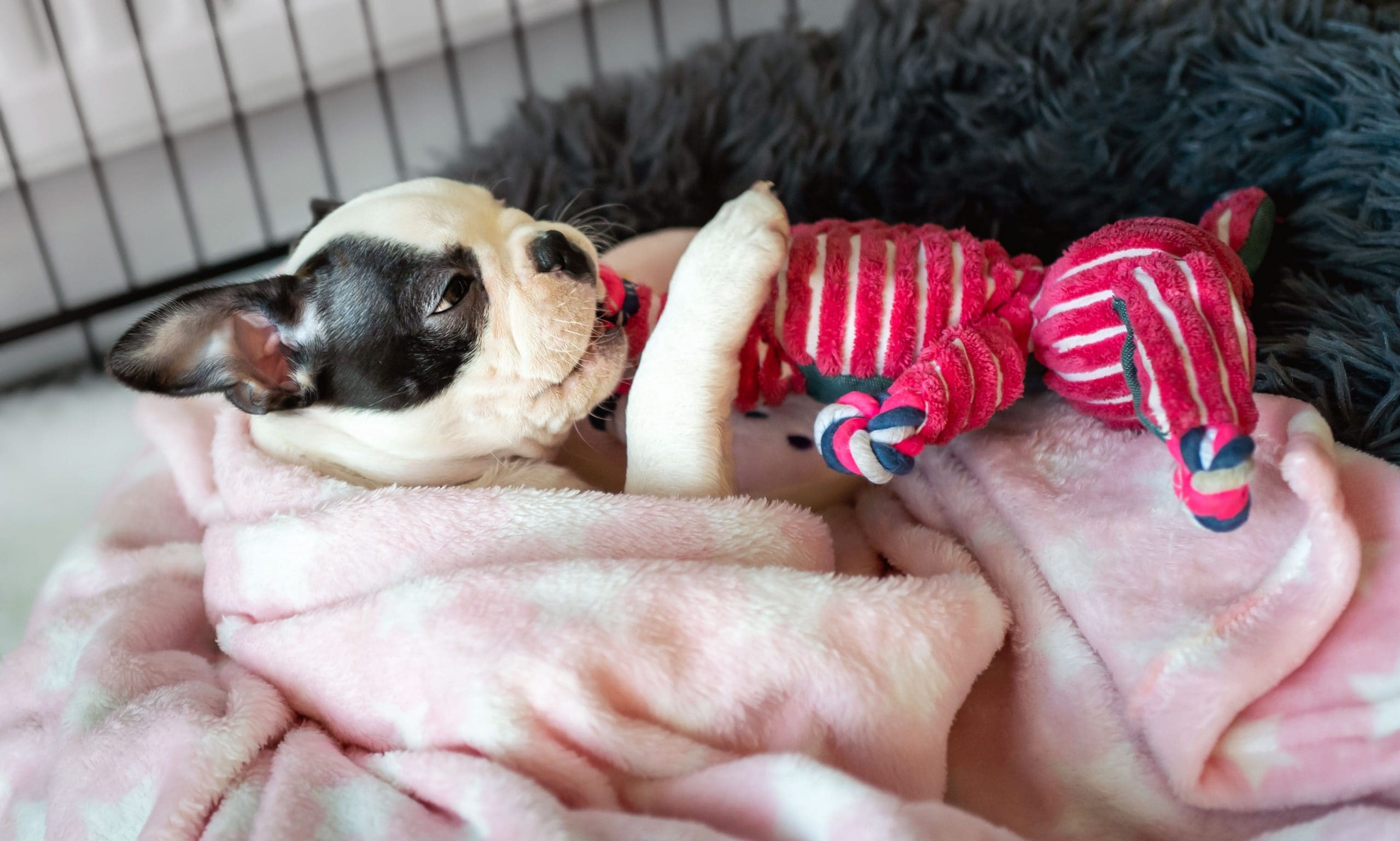
For example, let’s say you take your puppy outside for a potty break and then put them in their dog crate. If they immediately start whining, it’s probably just a brief case of crate intolerance (aka not wanting to go back in the crate) and not a reason to worry. But if your puppy wakes from a two-hour nap in their crate and starts whining, they very likely need to go outside to do their business.
Be aware that if your puppy is resorting to whining to let you know they have to urinate or defecate, an accident is imminent. A young, active puppy that’s running around needs to be taken out more frequently (every one to two hours for puppies under 8 weeks). It’s best to be proactive with your potty trips instead of waiting for a telltale whine.
Crated pups can typically "hold it" for about two hours max, and slightly longer at night.
How to Handle Your Puppy’s Whining
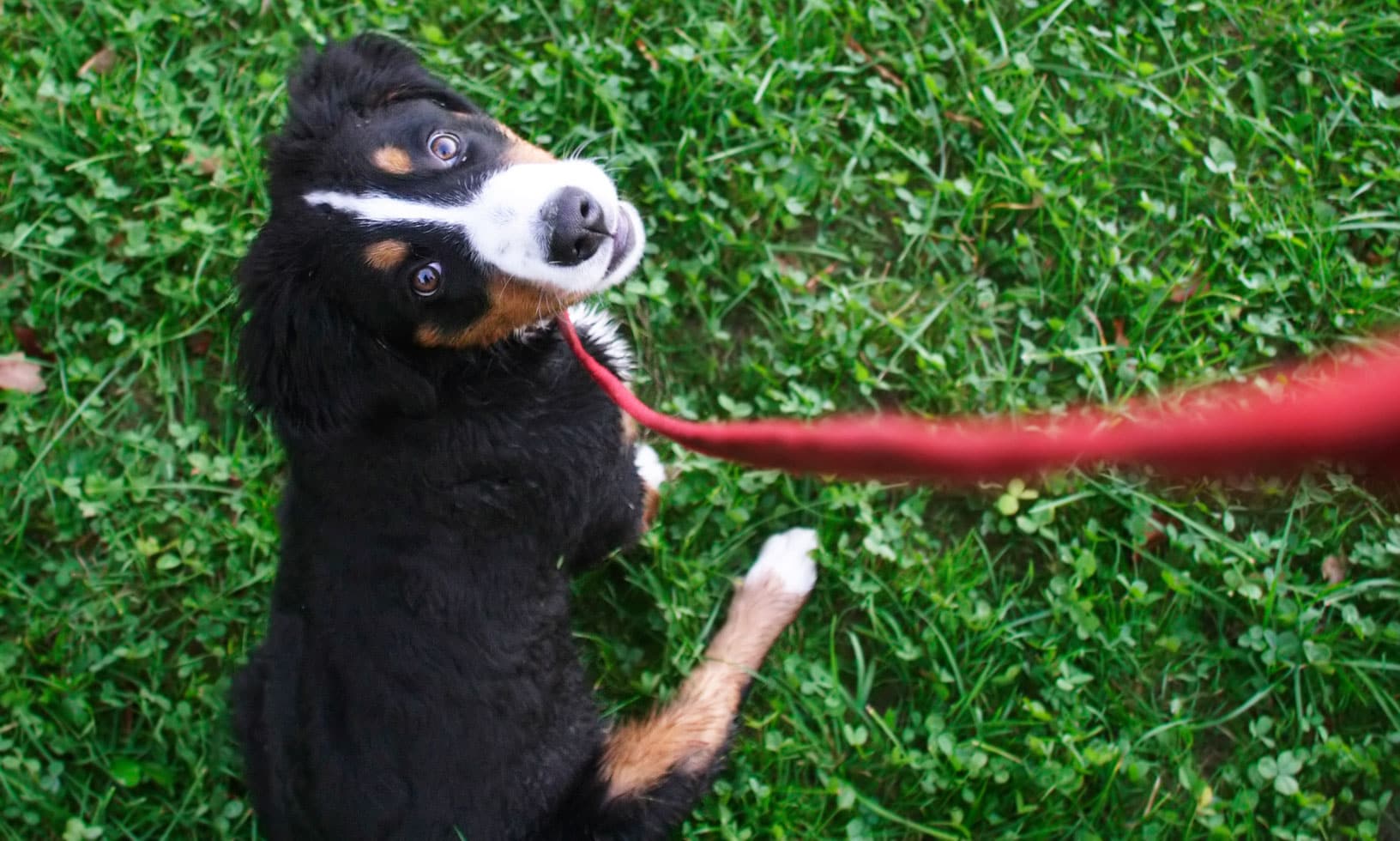
For example, in some instances, it’s OK to ignore puppy whining.
"[Ignoring a whining puppy] can help discourage attention-seeking behavior and teach the puppy to be more independent," Dr. Wolf explains. "However, it's important to use your best judgment and consider the circumstances before deciding whether to ignore your puppy's whining or not."
Some instances in which you should swiftly jump into action due to your puppy’s whining include:
If they need to go potty...
Promptly take them outside to do their business, as to avoid an inside accident.
If they appear to be experiencing physical pain or discomfort...
Take them to a veterinarian as soon as possible to assess their symptoms.
If they’re scared due to a thunderstorm or other loud noises...
"If your puppy's whining is due to anxiety or fear, ignoring them may exacerbate their stress and make the problem worse," says Dr. Wolf. "In these instances, it's important to address the underlying issue and work with your puppy to build their confidence and comfort in the situation."
If your puppy is whining due to separation anxiety...
In this instance, ignoring your puppy's whining may not be effective and is best handled by seeking the advice of a professional dog trainer or behaviorist who can help you address the problem, says Dr. Wolf.
Beyond those above instances, most other whines don’t express critical needs and should be handled differently. For example:
If your pup whines the second you close their crate door and you’re sure they’re "empty"...
The best approach is to ignore their protest and give them time to settle down. You can encourage whine-free time by giving your pup something to keep them occupied, whether they’re in their crate and settling down for a nap, or just hanging out near you as you watch TV. Treat-stuff-able hard rubber toys, like the KONG Puppy Dog Toy, or safe chew toys, like the Nylabone Puppy Teething and Soothing Chew Toy, will encourage them to focus on the goodies rather than crying for your attention.
If your puppy whines at you to put their food bowl down...
Wait for a moment of silence before doing so.
If your puppy whines with excitement because you just got home and you’re about to let them out of the crate...
Wait until they’re quiet before you open the door.
Summary of Tips for Reducing Whining
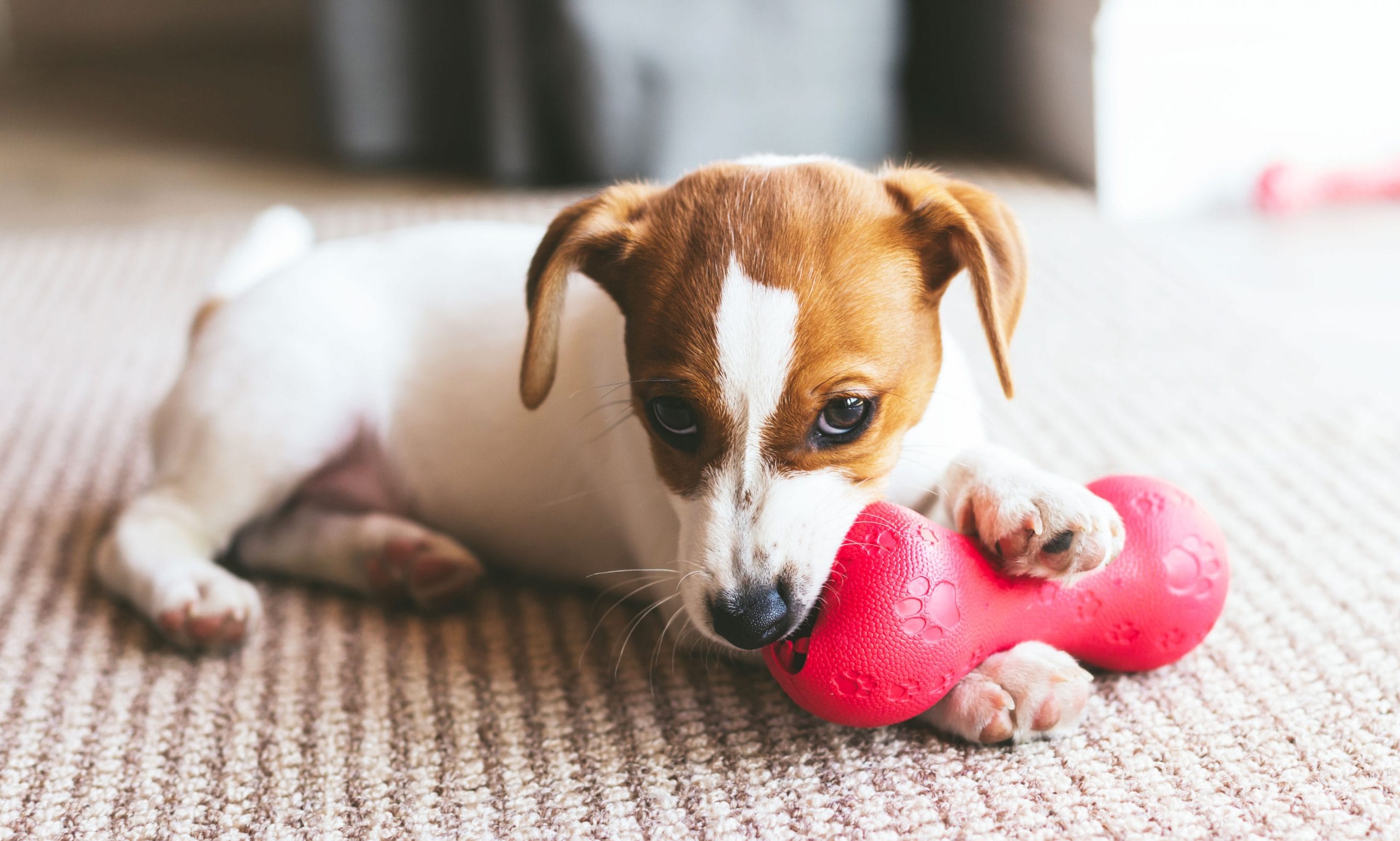
Be consistent with your routine.
Establishing a routine can help your puppy feel more secure and reduce their need to whine for attention. Stick to a regular schedule for feeding, exercise and playtime; and try to avoid sudden changes that may disrupt your puppy's routine.
Provide plenty of exercise and mental stimulation.
Puppies have a lot of energy and need plenty of opportunities to burn it off. Make sure your puppy is getting enough exercise and playtime to keep them mentally and physically stimulated. This can help reduce their need to whine for attention.
Reinforce calm behavior.
When your puppy is calm and quiet, provide positive reinforcement in the form of treats, praise or affection. This can help your puppy learn that quiet behavior is rewarded and encouraged. Avoid rewarding your puppy for inappropriate whining.
Remember, attention-seeking and demanding behavior that is rewarded will be repeated. So, if you check in with your puppy every time you hear them whine, they’re likely to continue the "whine for attention" strategy. It’s important that you help your puppy understand that quiet works better to get what they want.
Consider crate training.
Crate training can be a useful tool for reducing whining, as it provides a safe and secure space for your puppy to relax and rest. Make sure your puppy's crate is comfortable and inviting, and avoid using it as a form of punishment. Learn more about how to successfully crate train a puppy.
Be patient and consistent.
Remember that reducing whining behavior takes time and patience. Consistency in your training approach and positive reinforcement can go a long way in helping your puppy learn to communicate in a healthy and effective way.
Consider enrolling your puppy in a basic obedience class.
Obedience class isn't all about learning cute tricks—the real benefit is creating a shared language between you and your puppy. As they learn to do what you ask, it will help build their confidence, which often helps reduce whining behavior. Learn more about basic obedience training for dogs.
By decoding your puppy’s whines and addressing their needs, you're not only making your puppy’s world more comfortable but also nurturing a bond that will last a lifetime.
To learn more about how to handle whining as your dog ages, check out our articles about adult dog whining and senior dog whining.
More about puppy behavior:
Share:
